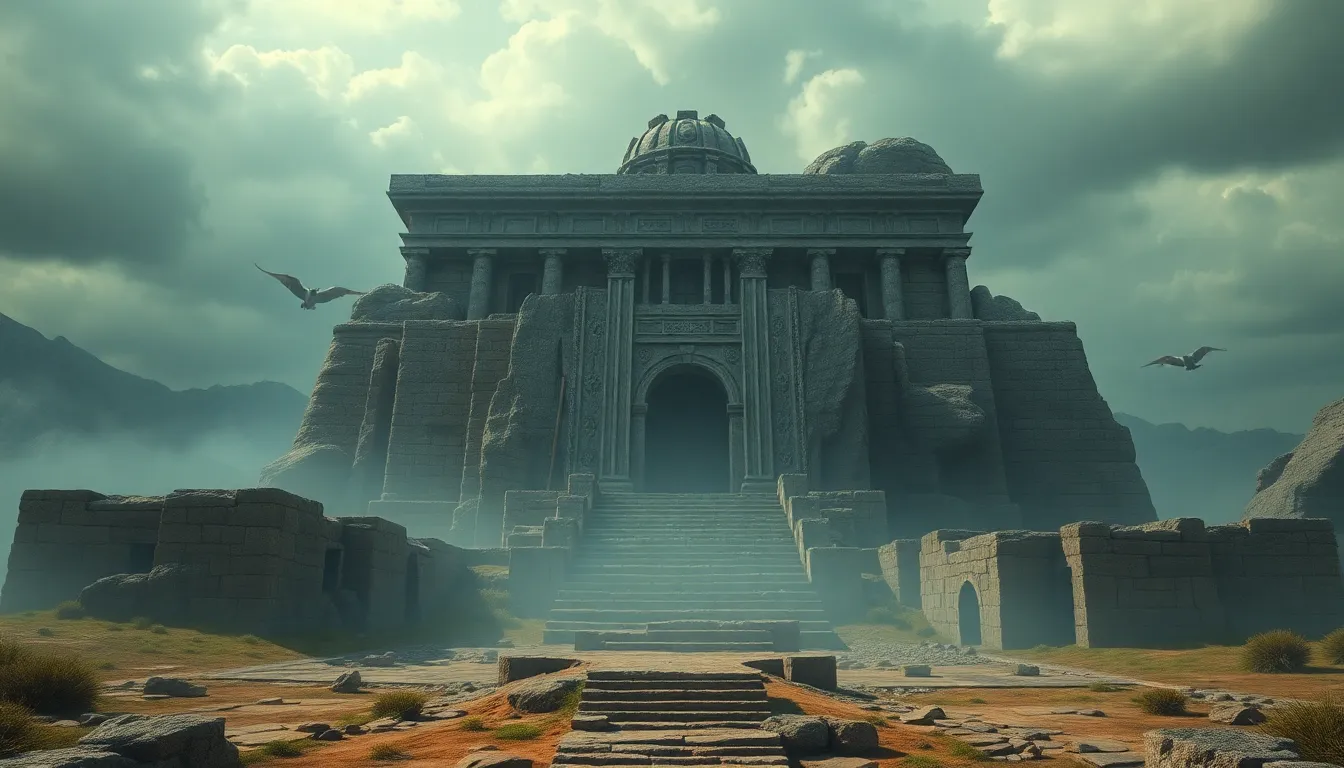The Kingdom of the Ancients: Myths of Forgotten Civilizations
I. Introduction to Forgotten Civilizations
Forgotten civilizations refer to ancient societies that once thrived but are now lost to history, often leaving behind only myths and remnants of their existence. These civilizations are significant as they provide insights into human history, culture, and the evolution of societies. The myths surrounding these ancient cultures serve as critical tools for understanding their beliefs, values, and societal structures.
This article explores various forgotten civilizations and the myths associated with them, aiming to uncover the lessons they impart and the ways in which they shape our understanding of history and culture today.
II. The Enigmatic Civilization of Atlantis
The myth of Atlantis originates from the writings of the ancient philosopher Plato. In his dialogues, “Timaeus” and “Critias,” he describes Atlantis as a powerful and advanced civilization that ultimately fell out of favor with the gods and sank into the ocean.
Numerous theories regarding the location and demise of Atlantis have emerged, including:
- The island of Santorini in Greece due to a volcanic eruption.
- The Azores in the Atlantic Ocean as remnants of a larger landmass.
- Antarctica, suggesting it was once habitable before being covered in ice.
Modern interpretations and archaeological pursuits continue to fuel the fascination with Atlantis, leading to various explorations and research aimed at uncovering the truth behind this legendary civilization.
III. The Mysterious Indus Valley Civilization
The Indus Valley Civilization, one of the world’s earliest urban cultures, flourished around 2500 BCE in what is now Pakistan and northwest India. Known for its advanced city planning, drainage systems, and trade networks, this civilization made significant contributions to human progress.
However, the sudden decline of the Indus Valley Civilization has sparked numerous myths and legends. Some theories suggest climate change, while others point to invasions or internal strife as possible causes. The significance of their written language, which remains undeciphered, adds to the mystery and allure of this ancient society.
IV. The Lost World of the Maya
Maya mythology is rich with intricate cosmologies, gods, and creation stories. The Maya civilization, known for its impressive architecture and calendar systems, thrived in Mesoamerica from around 2000 BCE until the arrival of Europeans.
Theories regarding the collapse of the Maya civilization include:
- Environmental degradation and prolonged drought.
- Societal upheaval and warfare.
- Economic collapse due to overpopulation.
The legacy of Maya myths continues to resonate in contemporary culture, influencing literature, art, and even popular media, reflecting the enduring fascination with their ancient wisdom.
V. The Legends of the Sumerians
The Sumerians, one of the earliest known civilizations, emerged in Mesopotamia around 4500 BCE. They are credited with numerous innovations, including cuneiform writing and the wheel. Their mythology is rich and complex, with tales that have influenced many subsequent cultures.
One of the most famous myths is the Epic of Gilgamesh, which explores themes of friendship, mortality, and the quest for eternal life. This epic not only provides insights into Sumerian beliefs but also illustrates the universal human experience, echoing through time and influencing later literary works.
VI. The Forgotten Civilizations of the Amazon
Ancient societies in the Amazon rainforest, such as the Marajoara and the Tapajós, have left behind fascinating archaeological sites and artifacts. These civilizations were highly sophisticated, with complex social structures and trade networks.
Myths of the forest often reflect a deep connection to nature, emphasizing the spiritual and practical importance of the Amazon ecosystem. Recent archaeological discoveries, including the finding of geoglyphs and evidence of large settlements, have reshaped our understanding of these civilizations and their environmental practices.
VII. The Ghost Cities of the Ancestral Puebloans
The Ancestral Puebloan civilization, known for its remarkable cliff dwellings and intricate pottery, thrived in the southwestern United States. Their migration patterns have sparked numerous myths and narratives, often related to their relationship with the environment and the supernatural.
These myths play a crucial role in preserving cultural identity, as they are passed down through generations, providing a sense of belonging and continuity. The stories encapsulate the struggles and triumphs of the Ancestral Puebloans, reflecting their resilience in the face of change.
VIII. The Influence of Ancient Egyptian Myths
Ancient Egyptian mythology is rich with tales of gods, creation, and the afterlife. Central to their culture, these myths explained natural phenomena and societal norms, providing a framework for understanding the world.
The impact of Egyptian mythology on neighboring cultures is profound, influencing Greek mythology and other civilizations. Today, modern-day interpretations and representations of Egyptian myths continue to captivate audiences, showcasing their lasting influence on art, literature, and film.
IX. The Legacy of Forgotten Civilizations in Modern Thought
Myths shape our understanding of history and culture, offering perspectives on human experiences across time. The resurgence of interest in ancient myths in popular culture, through films, literature, and art, highlights their continued relevance.
Lessons learned from the myths of forgotten civilizations include the importance of community, the relationship with nature, and the quest for knowledge, which resonate with contemporary societal challenges.
X. Conclusion: The Enduring Power of Myths
In conclusion, the myths of forgotten civilizations serve as powerful narratives that connect us to our shared human history. They remind us of the complexities of ancient societies and the timeless themes that define the human experience. Preserving these ancient narratives is vital, as they offer valuable insights into who we are and where we come from, fostering a deeper understanding of our world.



